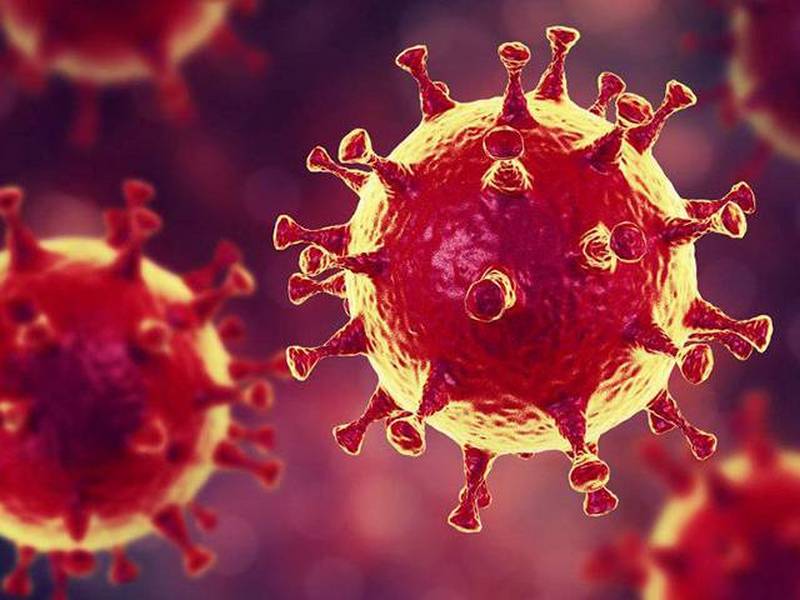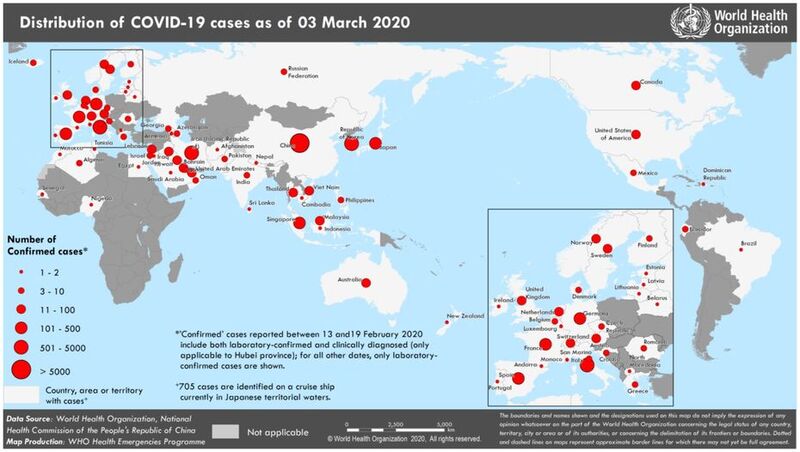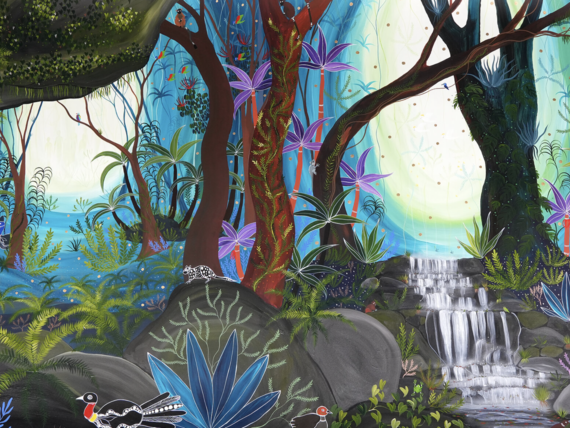The facts about novel coronavirus: Tropic Now's myth-busting guide

Everyone's talking about coronavirus.
But it seems misinformation and fear are spreading in conjunction with the outbreak.
Everything from 5G and online shopping are being blamed for infections, social media newsfeeds are full of outrageous claims and people are panic buying... toilet paper. So, what is the truth amid the myths?
Latest statistics from the World Health Organisation and other authorities as at March 12, 2020 show:
- There are 124,519 laboratory-confirmed cases globally (Source: WHO)
- 4607 deaths worldwide
- Of confirmed cases, the vast majority have been in China (80,980), with 128 cases in Australia
To get the facts, Tropic Now has reached out to local expert Professor Emma McBryde from James Cook University's Australian Institute of Tropical Health & Medicine.
She specialises in infectious diseases, epidemiology and mathematical modelling of globally significant infectious diseases, including influenza, SARS and tuberculosis.
What is coronavirus?
Coronavirus is a virus group that includes several viruses which cause the common cold, but also includes SARS and MERS, two recent emerging infectious diseases.
How does the 2019 novel coronavirus compare with SARS in terms of both infection rates and fatality rates?
It appears that the new coronavirus has a lower fatality rate but likely is at least as infectious as SARS, if not more so.
Is it just like getting the flu?
For most people, getting this coronavirus will be a lot like getting the flu, with dry cough and fever the main symptoms. However, it appears to be more severe than the flu in some people. Difficulty in breathing is the earliest sign of developing severe viral pneumonia, which has been present in the severe cases.
How is it transmitted?
It appears this virus is transmitted in a very similar way to other coronaviruses, which is through air droplets from coughing and sneezing and through contact via touching either directly person to person or via an object such as a door handle. It has not been fully established which of these is the main way to get the virus so it is best to take precautions for both types of spread.
Are only elderly people and people with compromised immune systems at risk of dying if infected?
No. Older people tend to have higher mortality rates, and having a poor immune system is a risk factor but otherwise healthy adults have also died from this infection.

Is there a need to wear a mask around Cairns?
No.
Is there a need to stockpile toilet paper?
No.
Should I avoid the hospital emergency department or medical centres?
There is no need to avoid ED or medical centres if you have a reason to be there. All medical centres are on alert that if someone has a suspicion of the coronavirus, they will be seen separately with appropriate mask use to ensure regular activity can continue at ED and health centres without putting people at risk.
If I've been to China recently and develop a cough, what should I do?
Notify your local health clinic by phone before coming in. That will give them time to prepare to see you, probably in a separate part of the clinic, or to refer you to the best place for assessment. It is likely you will be tested and then asked to remain home in quarantine until you recover, or you may be admitted to hospital for care under isolated conditions.
If I've been around people who've travelled here from China and develop a cough, do I have coronavirus?
This is very unlikely if you were in contact with Chinese people while in Australia, as there are no known cases of coronavirus out in the community at present.
Can I get coronavirus from products or packages shipped from China?
No.
Did the virus start in Wuhan because it was the first place 5G has been rolled out?
No. There is no evidence for this.
Where did it come from?
Like all new human viruses, it is likely that this virus is mutated from a similar virus in an animal host. Many similar viruses have been found in bats and other animals in the region. Precisely which animal was responsible is not yet known. However, now the more important thing is that it is efficiently spread from person to person.
Medicines
The World Health Organisation adds that researchers are currently trying to develop a vaccine against 2019 novel coronavirus. Vaccines against pneumonia, such as pneumococcal vaccine and Haemophilus influenza type B (Hib) vaccine do not provide protection. Antibiotics can’t be used to treat it because it’s a virus, not a bacteria. Getting the flu shot will help because it will reduce the likelihood of developing similar symptoms.
Travel
The Australian Government is advising residents not to travel to mainland China. If you disregard this advice, it's almost guaranteed your travel insurance won't cover you for medical expenses should you develop symptoms. You'll also have to self-isolate for 14 days once you return to Australia. Direct flights between Cairns and China have been suspended until further notice.
What's the latest advice from Queensland Health?
March 4, 2020 update: Queensland Health is urging anyone who has been overseas in the last 14 days and is feeling unwell to see a doctor immediately.
If you have been overseas in the last 14 days and feel unwell please call 13HEALTH or your GP or local hospital to arrange an assessment.
Calling ahead to the GP surgery or hospital is recommended to let them know your symptoms and travel history, this also helps them prepare for your arrival.
Even if you are feeling well, but have been in, or transited through, mainland China or Iran, you need to self-quarantine for 14 days from the date you departed mainland China or Iran.
Anyone with concerns can call 13 HEALTH or find up-to-date reliable information on the Queensland Health website here.








